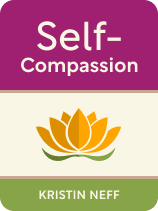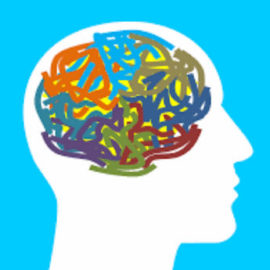

This article is an excerpt from the Shortform book guide to "Self-Compassion" by Kristin Neff. Shortform has the world's best summaries and analyses of books you should be reading.
Like this article? Sign up for a free trial here.
Do you suffer from depression and anxiety? How does self-compassion help with depression?
In Self-Compassion, Kristin Neff says research shows that people who are self-compassionate are less anxious and depressed than people who self-criticize. This is because they’re able to acknowledge and respond to their negative thoughts and emotions rather than ruminate on them.
Check out the process of self-compassion, depression’s effective cure.
Self-Compassion Reduces Anxiety and Depression
Neff notes that there are many benefits of self-compassion. Depression and anxiety trouble millions of people, but they can be reduced if you show yourself love. Neff says that research shows that people who are self-compassionate are less anxious and depressed than people who self-criticize because they’re able to acknowledge and respond to their negative thoughts and emotions rather than ruminate on them.
Recognizing your negative ideas and feelings as observable, temporary phenomena that come and go, as opposed to an all-encompassing reality from which there’s no escape, frees you from them. In addition, soothing and being kind to yourself during difficult moments makes you feel safe and grounded, allowing you to connect to others’ experiences of suffering. When you broaden your focus this way, you’re more able to consider positive things, which helps balance your negative feelings and prevents you from ruminating on them.
(Shortform note: Experts describe the experience of getting hooked by your negative thoughts as “loop thinking.” Left unresolved, loop thinking can lead to anxiety, irritation, and the intensifying of negative thoughts and feelings. For example, if you believe someone misunderstood or is ignoring something you said, you may feel compelled to justify that you were right and go in circles in your head trying to figure out how you can prove it. You can lose time and energy doing this and, if you do it too often, will struggle to live an attentive, meaningful life.)
Neff says that research shows that people who are able to create a more open state of being through self-compassion are more likely to feel optimistic about their future and confident in their ability to navigate any challenges that may arise. This is because each time they tap into their well of self-support in the face of challenge, they feel better and increasingly learn to trust their ability to take care of themselves.
In contrast, people who are critical of themselves are unable to create this calm, secure space. As a result, when they face challenges, they feel unsafe, scattered, and disconnected, making them more likely to fixate on their problem, which can cause anxiety and depression.
(Shortform note: Marketing experts suggest the relationship between openness and optimism also works in the inverse: Optimism breeds openness to new ideas, which can bolster entrepreneurs’ resilience. Optimistic entrepreneurs are more likely to be flexible in their thinking and thus less inclined to ruminate over failure. Instead, they’ll take challenges in stride and move on to new ideas as quickly as possible. Further, studies suggest there’s a link between entrepreneurs’ optimism and their company’s profits, as well as a positive relationship between optimism and new venture performance, indicating that optimism—possibly nurtured through self-compassion—supports entrepreneurs’ motivation and emotional and cognitive resilience.)
Neff also says that there’s a biological reason people become entrenched in their negativity: Our brains have a negativity bias that makes us more inclined to remember negative things than positive things. This is because our brain detects negative information as a threat to be avoided, while positive information is less relevant to ensuring our immediate survival.
(Shortform note: Neuroscientists say that we process negative experiences 10 times faster than positive ones, and that it takes five positive comments to counter one negative one. Further, because our brains don’t like idleness, when we’re mentally unoccupied we default to a state of repetitive worry.)
You can pull yourself out of a dark place by attuning yourself to how your negative emotions and suffering manifest in you physically. This grounds you in the present moment and allows you to respond gently to your pain without becoming consumed by it. For example, if you’re angry, you might notice that your jaw is clenched and say to yourself: “I notice that my jaw is clenched.” You can then think about the underlying feeling that’s leading you to clench your jaw and gently address that emotion and pain by saying to yourself, “I’m sorry you’re angry and hurting. This is a hard moment so it’s understandable to feel the way you do. You’ll get through this and everything will be okay.”
(Shortform note: It’s one thing to try to pull yourself out of a general state of sadness or unhappiness, but if you’re struggling with depression, engaging in physical grounding techniques alone are unlikely to help pull you out of the darkness. If you’re experiencing a prolonged state of feeling empty, lonely, and hopeless, a combination of coping strategies may help, including keeping a routine that centers on getting enough sleep and exercise, eating healthfully, socializing, and seeking the help of a therapist.)

———End of Preview———
Like what you just read? Read the rest of the world's best book summary and analysis of Kristin Neff's "Self-Compassion" at Shortform.
Here's what you'll find in our full Self-Compassion summary:
- The key practices, benefits, and obstacles to embracing self-compassion
- How self-compassion can improve your relationships with others
- The two biggest obstacles to self-compassion and how to overcome them






